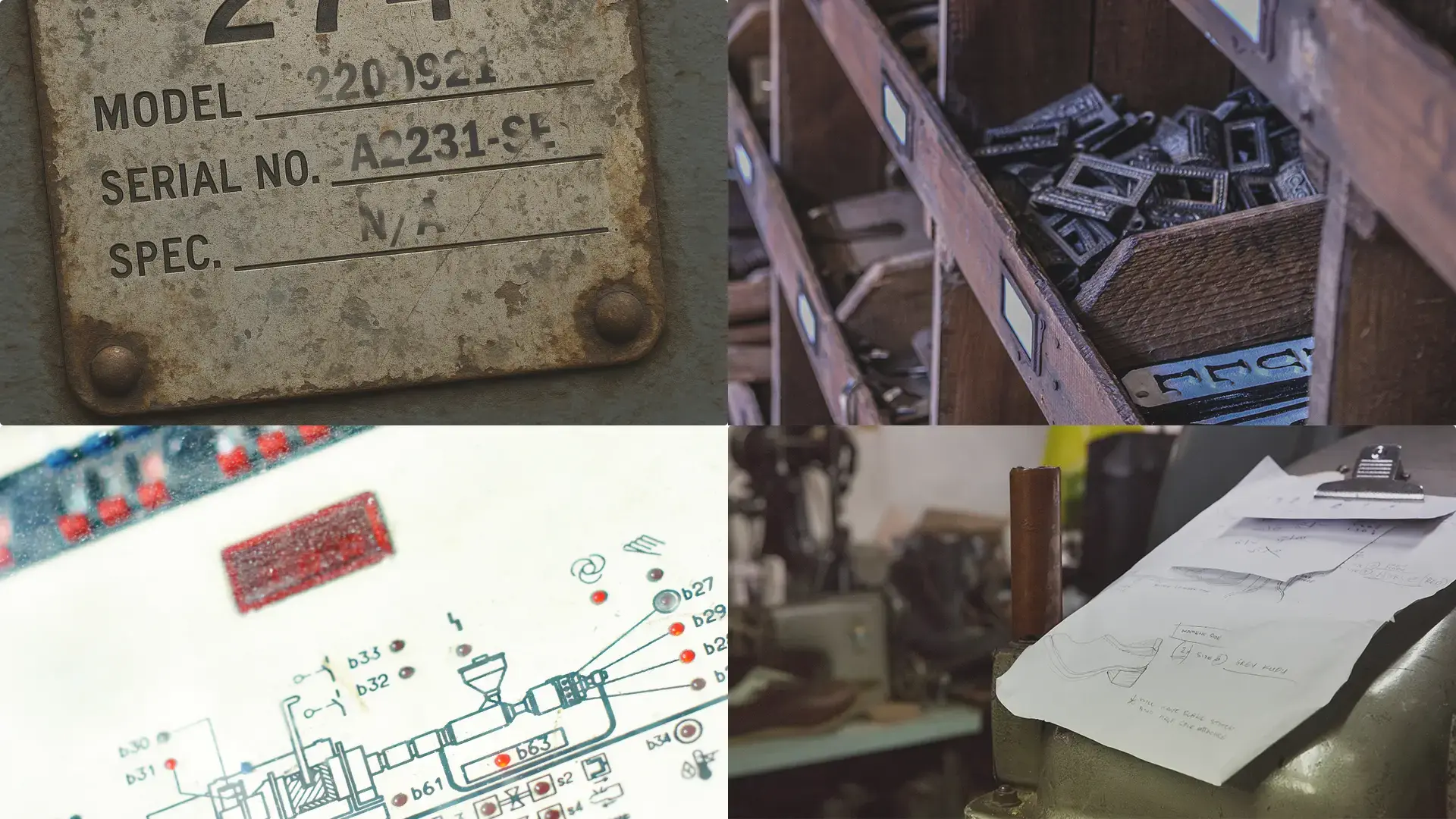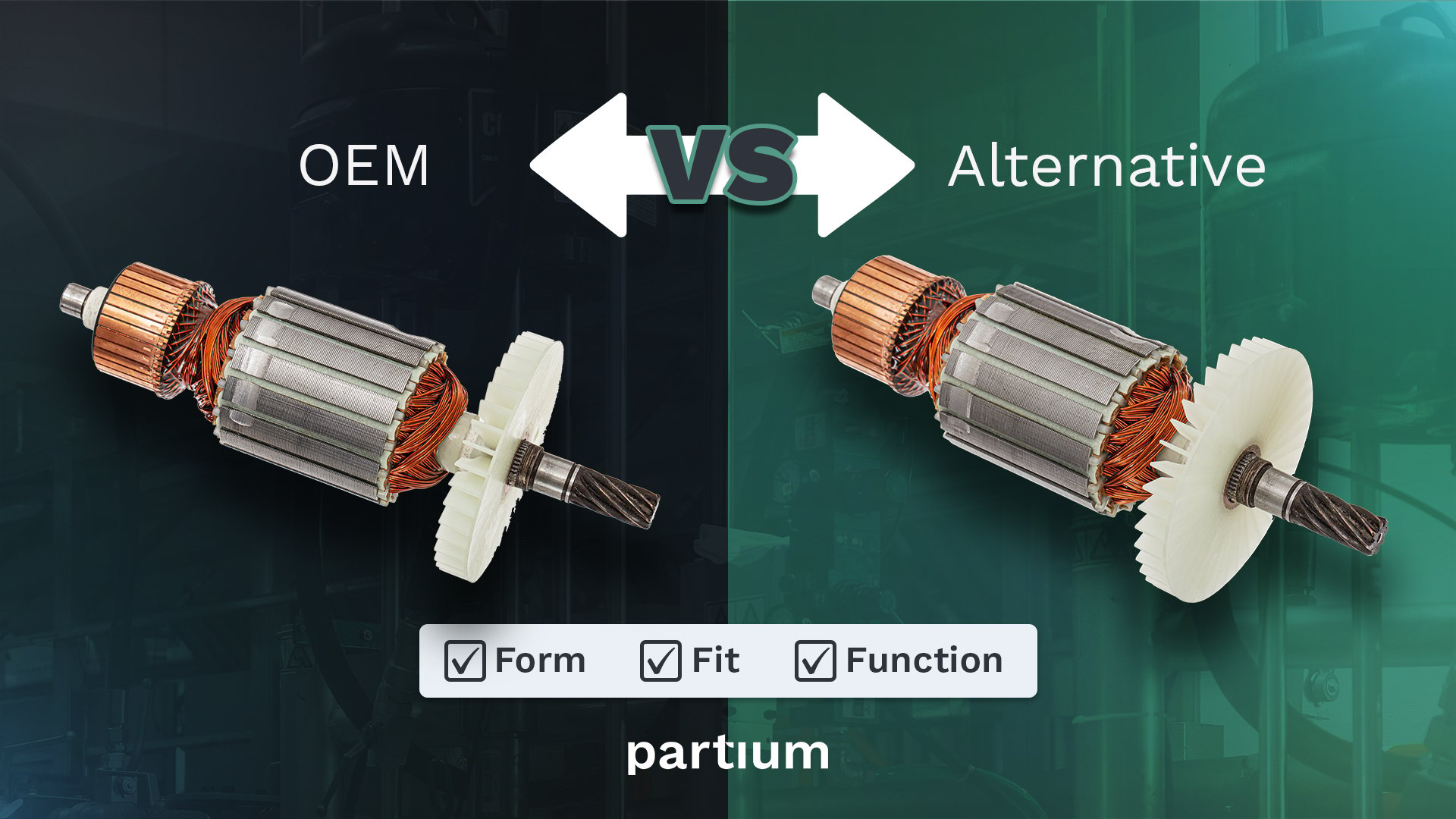Right Part, Lower Cost: How AI-Driven OEM Conversion Cuts Spend Without Adding Risk
Quick Summary Locked into OEMs? AI makes cross-compatible alternatives obvious at the moment of approval. Clean the records you actually use...
2 min read
Linda Piercy
:
Sep 16, 2025 7:30:40 AM

ERP and EAM systems like SAP don’t fail because they’re bad software — they fail because they’re fed bad data.
Companies spend $1–2M on BPO clean-up projects that take 12–18 months and only deliver temporary relief.
As soon as new parts, suppliers, or acquisitions hit, the bad data creeps back in.
Partium breaks that cycle by continuously cleansing, enriching, and harmonizing data.
For the cost of one BPO project, you get nearly a decade of clean, trusted data.

ERP and EAM systems are the backbone of modern operations. They run procurement, planning, budgets, reporting, and connect to countless plugins and modules.
So why does everyone hate using them?
The problem isn’t the ERP itself. It’s the data inside:
Duplicates clutter every catalog.
Inconsistent entries make searches unreliable.
Missing fields or wrong labels waste valuable time.
Technicians, planners, and buyers don’t distrust the system because it’s poorly designed. They distrust it because every search feels like a gamble.
Most companies eventually realize: it’s the data.
Their answer? A Business Process Outsourcing (BPO) project.
Here’s how it goes:
12–18 months of manual clean-up work
$1–2 million in cost
Catalogs look cleaner at the end… but only temporarily
Because the moment new machines are installed, suppliers are added, or a company is acquired, the cycle starts all over again: bad data creeps back in.
👉 The result is a recurring nightmare: temporary fixes, permanent frustration.

Partium breaks the cycle.
Instead of paying millions for one-time projects that degrade immediately, Partium delivers Data-as-a-Service:
Continuous cleansing & enrichment of your parts catalogs
Duplicate detection & removal that sticks
OEM conversion to reveal original part numbers and cut markups
Seamless integration with ERP, CMMS, and procurement systems
For the cost of one BPO clean-up, Partium provides 9–10 years of continuously clean data.
When your data stays clean and enriched, your ERP becomes a system people actually trust. That translates into measurable outcomes:
⚡ Faster fixes, fewer errors
💰 Lower sourcing costs & long-term BPO savings
😊 Happier customers and teams
🔄 ERP that people want to use, not just have to use
And this isn’t about replacing people. It’s about empowering them:
🛠️ Technicians spend less time searching and more time repairing.
📊 Planners work with catalogs that are clean and reliable.
💡 Buyers identify OEM alternatives and reduce dependency on costly suppliers.

ERP isn’t broken software. It’s broken data.
BPO projects may patch things temporarily, but they trap businesses in a costly, endless cycle.
Parts Intelligence
changes the equation. By continuously cleansing, enriching, and harmonizing your data, Partium keeps your ERP — and your business — running smoothly.
👉 Stop paying millions to fix data that just breaks again. Invest once, and keep it clean forever.
Looking to explore more on improving your Data? These expert resources offer proven strategies and frameworks to help you take the next step.
Your ERP Isn’t the Problem — Your Parts Data Is
Discover how AI-powered taxonomy and cleansing tools can transform fragmented parts catalogs into intelligent, searchable systems in minutes—not months.
Dive in to learn why structured, enriched data is the real foundation for uptime, efficiency, and smarter parts intelligence.
Friedman Corporation – ERP Data Quality Issues Can Harm Your Business
Poor data quality in ERP systems leads to operational inefficiencies, incorrect reporting, decision-making errors, and financial losses.
You can also Learn More by Booking a Parts Intelligence Demo

Quick Summary Locked into OEMs? AI makes cross-compatible alternatives obvious at the moment of approval. Clean the records you actually use...

Quick Summary FFF (Form, Fit, Function) is the engineering discipline that turns a substitute part from a guess into an auditable decision. “Form” =...

Quick Summary NRND (Not Recommended for New Designs), PCNs (Product Change Notices), and LTBs (Last‑Time Buys) are everyday realities—not edge cases